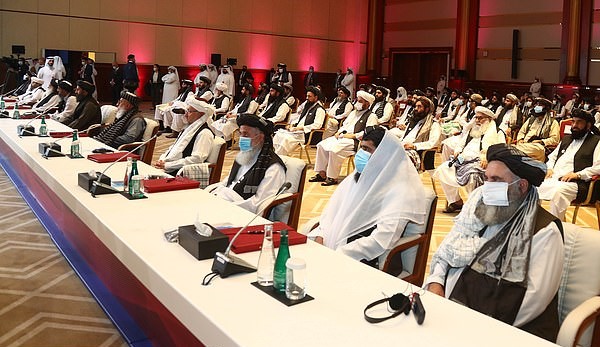Alwaght- Intra-Afghan talks, or in other words, talks between the central government of Kabul and the Taliban will begin in Qatar on Saturday. In this regard, the High Council for National Reconciliation of Afghanistan issued this statement: Afghan government delegation headed by Abdullah Abdullah to leave for Doha, Qatar on Friday to start intra-Afghan talks. In a statement, the High Council for National Reconciliation of Afghanistan expressed hope that after a long wait, the talks will be the beginning of peace and stability and the end of war and violence in Afghanistan. The Taliban also announced the dispatch of six of the group's prisoners to Doha, of which France and Australia opposed their release. With this in mind, the question now is that what are the most important areas of dialogue between the parties and to what extent is it possible for an agreement to be reached between the parties? In order to answer this essential question, Alwaght has sought the analysis of Pir-Mohammad Mollazehi, a senior expert on Afghanistan’s issues.
The Unity of Taliban in Appearance, but Fragmented from within
Pir-Mohammad Mollazehi believes that, in connection with repeated changes of the Taliban negotiating team before their trip to Qatar, the Taliban, despite appearing cohesive, have divisions within them that disagree on how a negotiation and a possible agreement with the central government should be achieved. The question of which areas the Taliban will show flexibility in and which issues are considered red lines for them is still controversial. In particular, the Quetta Council have stronger positions and are not satisfied to form a partnership in ‘power’. Although the group can gain power in the future as a democratic mechanism, they continue to put military policy on the agenda. This is at a time when another section of the Taliban believes that the current juncture is the best time to reach an agreement, given that they are at the height of their military power and have large areas under control and also the fact that the Americans support the deal. These two different perspectives can be evaluated as the most important factors for the negotiating team's numerous changes.
The Difficulty of Reaching an Agreement While Crossing Red Lines
In another part of his remarks, the pundit emphasized the availability of peace conditions and the real will of the two sides to achieve peace.
"First of all, it is important to note that the initiative is not in the hands of the Afghan government and the Taliban, but rather, in the hands of the Americans and Pakistanis who act as the main determiners of the negotiation process. In Donald Trump's view, with the US election approaching, the start of intra-Afghan negotiations would be a major foreign policy achievement for him even if unsuccessful. Thus, due to his personal benefits, he is trying to pressure both sides to come to the negotiating table. The fact is that the Taliban have repeatedly stated that they will not negotiate with the current Afghan government, especially whilst Abdullah Abdullah is in power, however, the pressure from the US and Pakistan has now led them to negotiate," Mollazehi explained.
He added that "Given that the red lines of the central government and the Taliban are very different from each other, there is little hope that an agreement between the two sides would be formed in the short term. It seems that Abdullah Abdullah is very optimistic towards this issue; Considering that the Taliban's red line is the Islamic Emirate, and the central government's red line is the constitution and the preservation of the current democracy in place. Therefore, these two different lines of thought and strategy cannot be combined, but the Taliban may seek to establish an interim government with its participation; If such an approach is taken, Abdullah Abdullah’s optimistic view will certainly not be implemented."
Donald Trump Seeks to use intra-Afghan Negotiations as a Winning Card
In another part of his remarks on the most important issues under discussion, the Afghan affairs expert clarified that "The most important issue from the government's point of view is the continuous of ceasefire; That is, the government intends to convince the Taliban to stop fighting permanently, but this is an issue that the Quetta Council is unlikely to agree on. Even if the Quetta Council accepts this, there are other groups that will not be committed to this matter, and the Haqqani Network will probably not accept this process. Nevertheless, it seems that in the next 50 days of the upcoming US election, Trump plans to use the Afghan negotiations and the normalization agreement of Arab relations with Israel as his two winning cards. Therefore, US pressure on the parties will continue in the coming days, but after the election, with Trump in office or not, Afghanistan's negotiations will no longer matter to the White House."



























